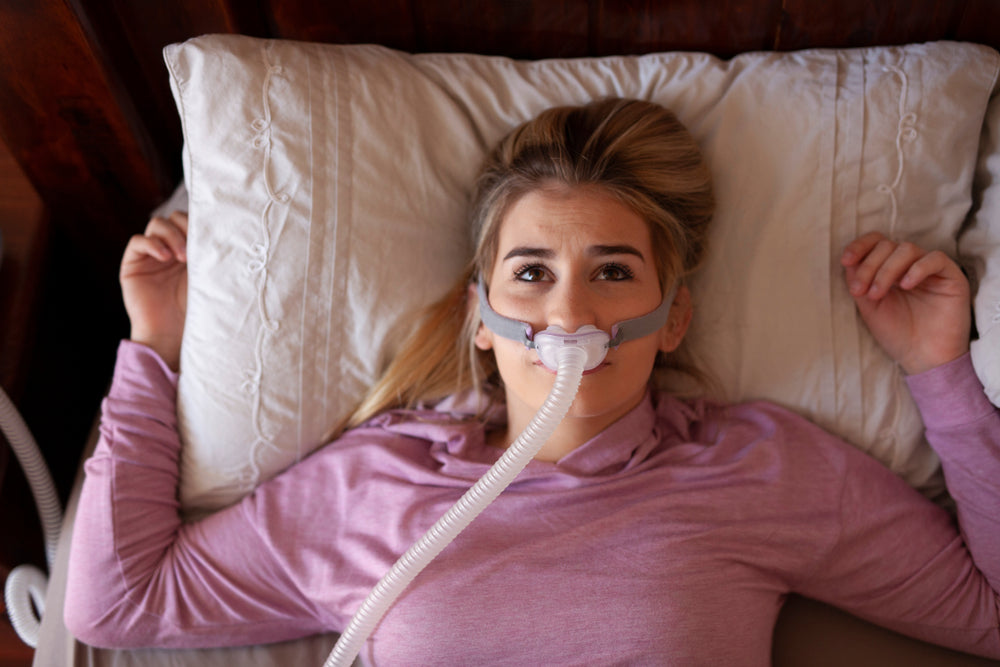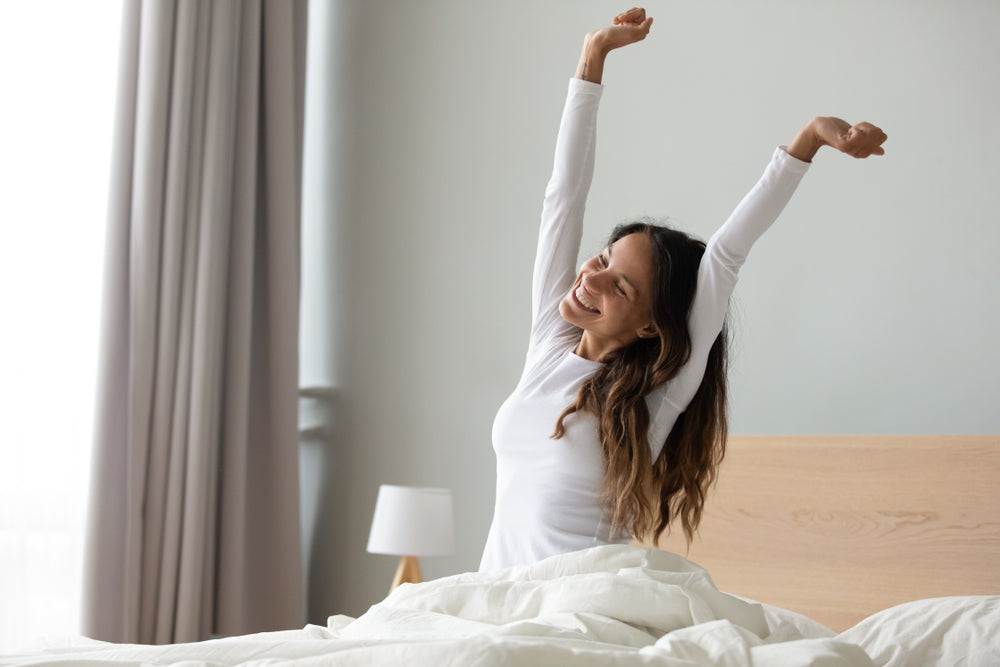How Does a CPAP Machine Work?
What is a CPAP machine?
A CPAP machine (continuous positive airway pressure) is a machine used to treat obstructive sleep apnea and other sleep disorders by delivering air to the sleep apnea patient through a CPAP mask and tube to keep their airway open. A CPAP machine is usually around the size of a lunchbox. CPAP machines have been around since 1980. CPAP therapy was invented by a man called Colin Sullivan.
Which is a CPAP machine used for?
Two types of sleep apnea can be treated with a CPAP machine: obstructive and central. Both of these sleep disorders cause interruptions in breathing during sleep. They cause momentary pauses in breathing (the gasping you may experience); these lapses in breathing or "episodes" can happen hundreds of times a night, leading to a lack of oxygen. This leads to a plethora of other issues, including waking up feeling foggy, disorientation during the day, general fatigue and, on a more serious note, an increased risk for high blood pressure, heart disease, stroke, diabetes and other serious health concerns. That's where the CPAP machine comes in, providing a continual flow of pressurised air throughout the evening. A CPAP machine can significantly improve sleep quality and reduce heart disease and stroke risk.
How does a CPAP machine work?
The compressor of a CPAP machine creates a continuous supply of pressurised air that flows through an air filter and then to a tube attached to a mask (face mask or nasal mask). CPAP patients wear the CPAP mask, which is sealed around their nose or mouth. This continuous airflow means that your upper airway remains open while you sleep, and your lungs receive an adequate supply of oxygen. When nothing is blocking this oxygen flow, your breathing doesn't pause. This prevents you from repeatedly waking up to breathe, which means a restful night's sleep!
What are the different types of CPAP machines?
There are three different types of CPAP machines:
- CPAP (continuous positive airway pressure)
- BiPAP (Bilevel positive airway pressure)
- APAP (Automatic positive airway pressure)
How do CPAP, BiPAP and APAP differ?
CPAP (continuous positive airway pressure)
With CPAP devices, continuous pressurised air is delivered to the wearer's airway via a face mask and tube while they sleep. By keeping the airway open with a constant flow of oxygen throughout the night, the wearer does not have to gasp for air and can sleep better.
If you believe a CPAP machine may be for you, check out our range, including our ResMed AirSense 10 Elite CPAP Machine, which includes innovative features such as:
- Integrated HumidAir™ humidifier
- Easy-to-use settings and logical menus
- AutoRamp with sleep onset detection
- ClimateLineAir™ heated tube
- Built-in ambient light sensor
- Intelligent detection

Or alternatively check out our Fisher & Paykel SleepStyle CPAP Machine, boasting a range of impressive features like:
- Fully integrated humidifier and power supply
- ThermoSmart Humidification Technology
- SensAwake Technology
- Expiratory Relief Technology
- F&P InfoUSB
- Built-in Cellular Connectivity
- Built-in Bluetooth Connectivity


BiPAP (Bilevel positive airway pressure)
A BiPAP machine differs as unlike CPAP, which offers one continuous setting, the BiPAP machine has two different air pressures — one for the inhale and another for the exhale. By reducing the air pressure when the wearer exhales, BiPAP machines make it easier and more comfortable for those who previously found CPAP challenging to use. BiPAP is also recommended for those who may require more breathing assistance. For example, a health professional may prescribe BiPAP to patients with congestive heart failure and other heart and lung diseases.
If you believe BiPAP may suit your needs, then check out our ResMed AirCurve10 CS PaceWave ASV, featuring the following high-tech features:
- Built-in HumidAir™ humidifier
- Built-in wireless connectivity
- ASVAuto mode
- Easy-Breathe
- Continuous leak management
- Climate Control

APAP (Automatic positive airway pressure)
An APAP machine offers a more personalised treatment. It responds to the changing pressure and adjusts the settings depending on what is needed. This is done by monitoring the wearer's breathing and adapting to the minimum pressure required to keep the airway open — creating a more natural breathing rhythm. As a result, an APAP machine can remain on a relatively low setting until breathing suggests more airflow is needed. Because of this sophisticated capability, the term "automatic" is used.
If APAP sounds like the right treatment option for you, then check out our ResMed AirSense 10 AutoSet 3G, featuring the following high-tech functions:
- ClimateLineAir™ heated tube
- Built-in ambient light sensor
- Easy-to-use settings and logical menus
- Integrated HumidAir™ humidifier
- AutoRamp with sleep onset detection
- Intelligent detection

What are the advantages of a CPAP machine?
Sleep Apnea is a serious sleep disorder; untreated sleep apnea has the potential to cause numerous health problems in the future. The good news is it's a highly treatable disorder. The advantages of using CPAP therapy include the following:
- Getting a good night's sleep (first and foremost)
- Stops you from snoring
- Heart disease prevention
- Stroke prevention
- Diabetes prevention
- Preventing motor vehicle accidents (by preventing daytime sleepiness)
- Enhanced daytime alertness
- Enhanced concentration
- Enhanced emotional stability
With years of experience in the sleep industry and all things sleep medicine, we understand that everybody has their own individual journey with treating obstructive sleep apnea. That's why we are always open to chatting with our customers. With a team of sleep experts, we can help you with any questions or queries about sleep apnea treatment and your next move forward. So call our friendly team and speak to a sleep specialist on 1300 613 999 to discuss your CPAP treatment or other treatment options. Alternatively, visit one of our stores to check out everything CPAP Depot has to offer.


